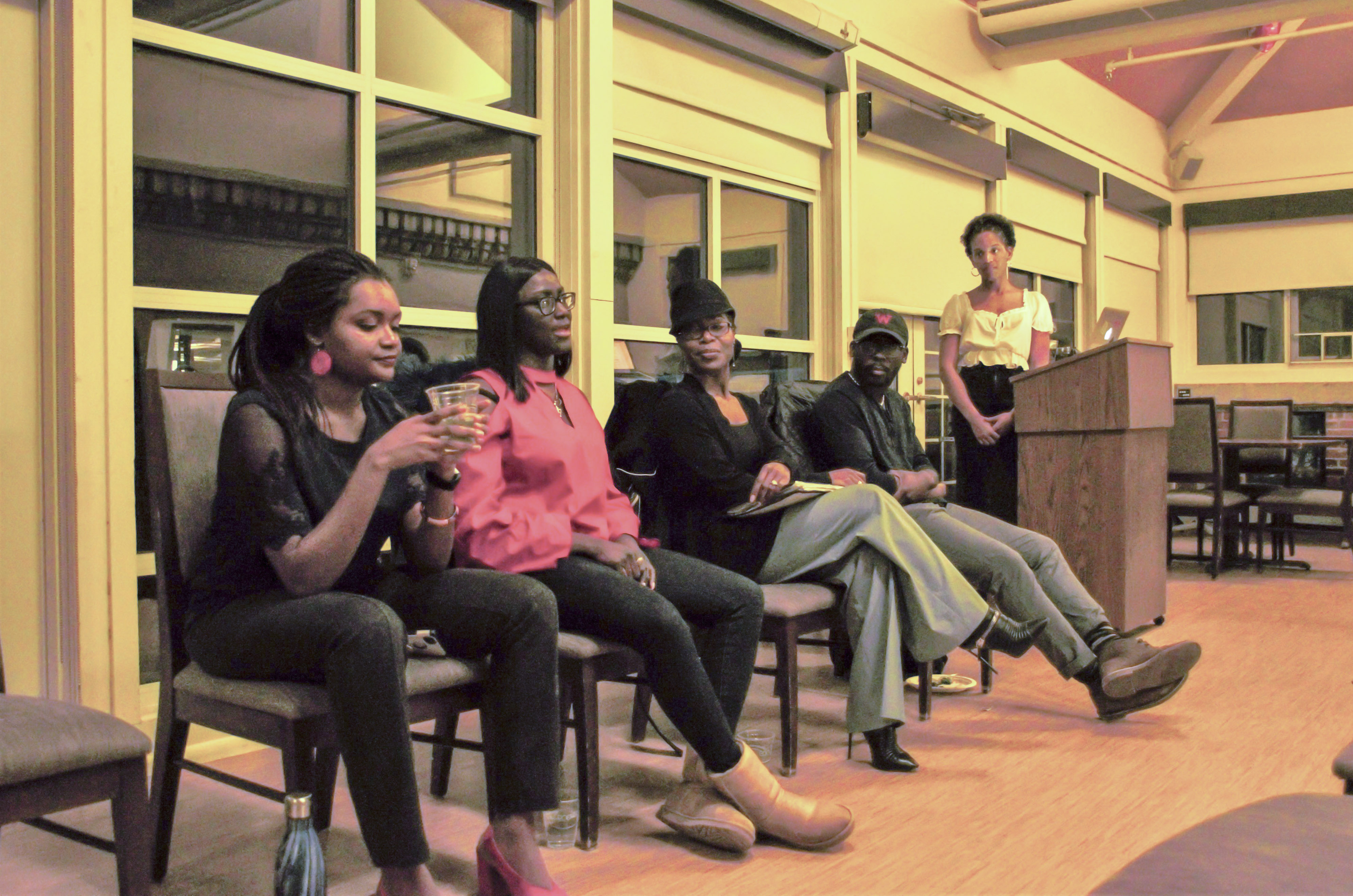
On Tuesday, Feb. 19, Ujamaa, the University’s Black Student Union, presented a panel discussion featuring University alumni and students. Panelists shared their experiences of being Black in STEM classes and departments and offered insight into navigating academics, as well as future career opportunities. The invited panelists included Nadine Mills ’98, Amarachi C. Asonye ’16, Jeneille Russell ’18, Henry Martellier ’19 and Mubarak Sanni ’20.
After brief introductions, the panelists collectively reflected upon their undergraduate experience at the University. Panelists emphasized the importance of seeking resources on campus, making connections with other students and staff, and taking initiative to promote active change. Another key point in the discussion was the importance of taking the time to explore a variety of courses.
The panelists addressed how to access the necessary support and resources to succeed and navigate certain challenges of being a person of color. Martellier urged attendees to reach out and form support systems on campus.
“While at times I find it can be difficult to thrive in academic spaces as a person of color, especially given the limited number of POC faculty, I have been fortunate to cultivate relationships with my advisor and other extremely supportive faculty,” Martellier said. “More on this note, I encourage students of color on campus to continue building networks and helping one another through shared challenges.”
Among the advice communicated by panelists, a common thread was the encouragement for students to take active measures toward furthering their success. Continuing to build upon the discussion of the experiences of people of color, the panelists urged students to take initiative in the workplace rather than continually relying on others to instigate change and provide the necessary resources.
“It is so important that you realize that if you want something you have to take initiative,” Mills said. “While I have increasingly noticed a glimmering of supportive coalitions among people of color begin to emerge in academic environments, these kind of supportive coalitions may not always exist in the workplace. However, that absolutely does not mean you cannot take the lead and start one. Entering into a new job, if you do not see what you need, try to form connections with other people and begin building your own coalition.”
Mills, who has served as an educator with the Connecticut Technical Education and Career System and currently works as a Teacher Leadership Fellow, noted that her proactive efforts in taking numerous courses across different academic disciplines was instrumental in discovering her passion for environmental science.
“When I was here, the one certainty I had was that I wanted to be at Wesleyan,” Mills said. “I always seemed to gravitate toward the math and sciences, but as someone who continually strives to adapt to my weaknesses, I made a point to take a myriad of courses ranging from chemistry to philosophy. In doing so, I soon found that I fell in love with the environmental sciences.”
Sanni, a current Neuroscience and Science in Society Program (SISP) double major, also voiced the value of interdisciplinary education in illuminating new academic interests and points of resonance.
“I have always loved the humanities and enjoyed writing,” Sanni expressed. “I discovered that the interdisciplinary nature of SISP would enable me to engage with elements of the humanities and certainly with the sciences. This driving desire to experience many different fields was what fostered my aspirations for majoring in SISP.”
Speaking within the context of the University’s rigorous academics, the panelists made a point to stress the importance of prioritizing one’s mental health.
“For me, first and foremost, prioritizing my mental health is always at the forefront of my concerns,” Sanni said. “Whether or not you are in humanities or in the sciences, course loads and exam preparation can induce a great deal of stress. Make sure you are not sacrificing your health.”
Asonye also commented on maintaining a healthy level of perspective when adjusting to academic life at the University and classroom environment dynamics that might initially feel overwhelming.
“Recognize that people coming into Wesleyan are coming in with varying levels of education, privilege, and opportunity,” Asonye explained. “While it is often tempting to compare your performance with other students, try to remain focused on your own progress and not place limits on your capabilities.”
As a part of Black History Month, the “Black in STEM” panel discussion provided a platform for faculty, students, and alumni to discuss how to further efforts to provide students the necessary resources to succeed and address challenges that students of color face.
“Throughout tonight’s discussion we have touched upon the inherent challenges people of color often face in academics and careers,” Russell said. “Utilizing the resources around you, such as taking full advantage of TA office hours and reaching out to professors, is crucial. Tonight’s event continues to give me hope for the future of POC in STEM as this reflects a demonstrated effort to continue better supporting individuals in these fields.”
Serena Chow can be reached at sschow@wesleyan.edu.


Leave a Reply